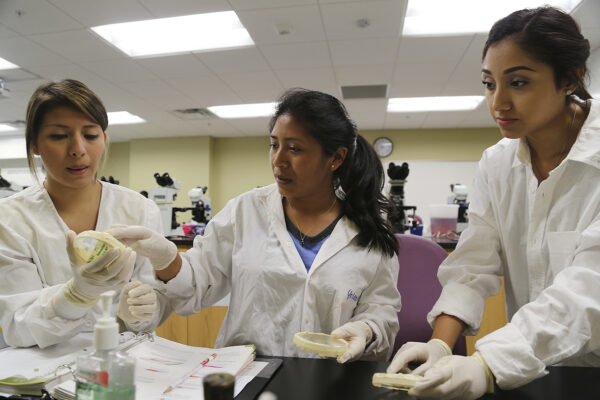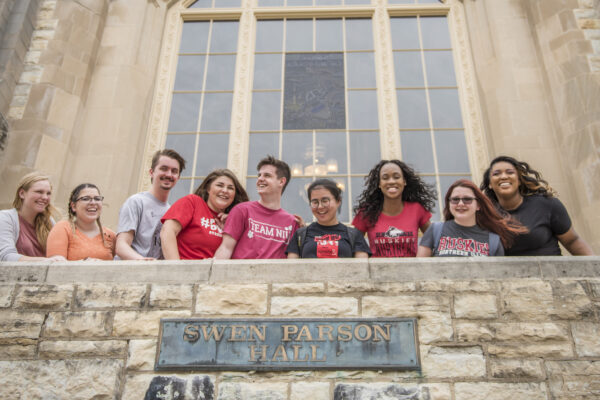ACE2019: Creating Programs for Students with Intellectual and Developmental Disabilities
Tony Williams, partner and chairman of Washington 2 Advocates, opened the Sunday session on “Students with Intellectual and Developmental Disabilities: How to Create Programs for Success and Empowerment” with a personal story about his son Joshua. Joshua was born without a pulmonary valve and needed open heart surgery two months after being born.
Joshua thrived in high school because the school had high expectations of him and for him, and Williams never doubted that Joshua would go to college. He knew what he wanted: college, football, dining hall meals, dorm living, and no curfew. The Williams family looked at three particular special education options: ClemsonLIFE, Aggies Elevated, and UI Reach.
They finally settled on UI Reach, which has been around 10 years and is a top program for students with intellectual disabilities.
Joshua is now in his second year at UI, where he lives in the dorm, goes to football games (he’s the most loyal Hawkeye fan), and has “found his tribe.” Next year he will participate in the optional third year, living on his own in an apartment. Williams acknowledges the privilege of being able to pay out-of-state tuition and for frequent travel; it’s not an option for many. So he helped his home state school Washington State University develop WSU ROAR.
Think College, part of the Institute for Community Inclusion at the University of Massachusetts Boston, is a federally funded national center coordinating college opportunity for students with intellectual disabilities. The center connects students to programs at 265 institutions, showing families the wide range of programs available. It’s designed for students that will benefit from a college education but may not meet typical admission requirements. These programs are located at all kinds of college campuses—two- and four-year, public and private.
Cate Weir, project director, joined the panel to describe Think College and the history of funding for postsecondary special needs education.

In 2008, the Higher Education Opportunity Act provided access to federal student aid for student with intellectual disabilities, approved a definition of comprehensive transition programs, and provided funding for a national coordinating center.
Weir emphasized that such disabilities do not mean the students are incapable of learning. Today, data show that 65 percent of participants in these programs are employed one year after graduation, compared to the national average of 19 percent of adults with intellectual disabilities. She pointed to the 4,500 colleges and universities in United States, every single one of which can become involved in such programming—but currently, less than 6 percent are.
Heidi J. Graff, associate professor and academic program coordinator at Mason LIFE (Learning Into Future Environments) at George Mason University (GMU) in Virginia, described how the campus worked with its college of education to form an auxiliary program of special education. Mark Ginsberg, dean of the College of Education and Human Development at GMU, noted that the program has impacted all 38,000 students on GMU’s campus, through integration with the broader campus community. It’s also the largest on campus employer, providing valuable training and experiences to students outside the LIFE program.
The panelists shared the following list of advice for those seeking to develop programs.
- Panelists emphasized the need for a champion on campus. Williams noted examples of presidents (like Edward Ray of Oregon State University, who was in attendance) who have used their positions to drive support for these programs.
- Graff and Ginsberg also noted that their program grew out of families in their community pressing the institution to serve these students.
- For families to be able to buy in, the program needs to be financially viable and accessible, but high quality. It also needs the full support of faculty and administration.
- Utilize partnerships wherever possible on campus.
- Look at students with disabilities as part of the overall campus focus on diversity.
- Program participants are not considered by many states to be “students,” so institutions often don’t receive the state support provided for other students. The effect can make these students more expensive to educate, though financial support through other areas (scholarships and external grants) are available.
- Look to states that are doing these programs well. For example, Tennessee makes every scholarship offered available to students with developmental disabilities.
Williams wrapped up the session with another story about his son. Before going to college, Williams said, he saw Josh realize he was different from his peers. He asked his father, “What ability do they think I don’t have?” Through his experience with UI Reach, Josh has proven that what differences may exist, they don’t matter to his pursuit of a college education.
—Kristen Carmen
If you have any questions or comments about this blog post, please contact us.


